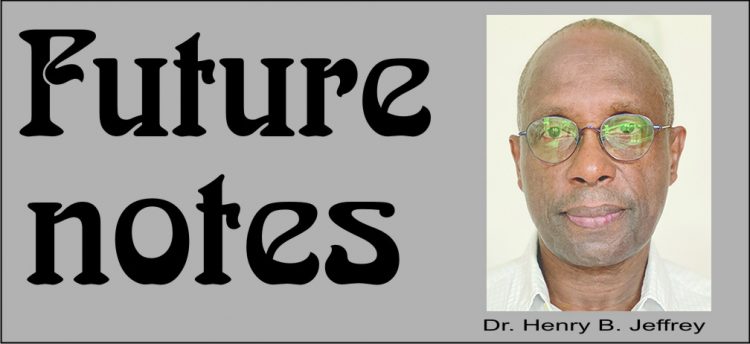 The results of the current national and regional elections have already confirmed that anyone who believes that regime change will in itself set Guyana on the path to ethnic unity and development are deluding themselves. The ethnic division is as stark as it has ever been and whichever of the two large parties win these elections will leave one ethnic block extremely disgruntled and reluctant to cooperate in the process of national development in any meaningful manner. Even more troublesome the notion that any of the smaller parties could possibly mitigate such a massive level of estrangement by cooperating and keeping in office a plurality government is even more of a pipe-dream. Indeed, depending upon how the latter is configured, it could deepen the ethnic divide. Therefore, regardless of who wins or loses these elections, unless they are followed by deep governance reforms Guyana’s political problems will not be solved in a timely manner. Ingrained political theory cannot take precedence over the logic of social facts.
The results of the current national and regional elections have already confirmed that anyone who believes that regime change will in itself set Guyana on the path to ethnic unity and development are deluding themselves. The ethnic division is as stark as it has ever been and whichever of the two large parties win these elections will leave one ethnic block extremely disgruntled and reluctant to cooperate in the process of national development in any meaningful manner. Even more troublesome the notion that any of the smaller parties could possibly mitigate such a massive level of estrangement by cooperating and keeping in office a plurality government is even more of a pipe-dream. Indeed, depending upon how the latter is configured, it could deepen the ethnic divide. Therefore, regardless of who wins or loses these elections, unless they are followed by deep governance reforms Guyana’s political problems will not be solved in a timely manner. Ingrained political theory cannot take precedence over the logic of social facts.
That said, listening recently to a London School of Economics lecture involving John Sexton, former president of New York University (NYU), speaking about his recent book Standing for Reason: the University in a Dogmatic Age and Gordon Brown, former British Prime Minister, who wrote the introduction to the book, I was again reminded of the strength but illusiveness of the relationship between social structures and political theory but only now in the global sphere.
A lifelong Catholic, Mr. Sexton graduated from a now defunct Jesuit high school in Brooklyn, New York, followed religious studies, earning a Ph.D. in the history of American religion and a J.D. from Harvard University and Standing for Reason is one of his several books. He was president of NYU between 2002 and 2015, during which time he built it into what he called an ecumenical institution with campuses in Dubai and Shanghai and study centres in about 16 other places around the world. In a 2019 interview, he said that, ‘I think that the university, at least when it’s operating well, is the center for preservation and advancement of thought—and I think it has structural advantages, especially in the present political climate, for society to have meaningful dialogue. So when I say “standing for reason” in the title, in one sense I’m arguing on behalf of reason, but in another sense I’m arguing that universities can, in a very special way that’s beneficial to society, both incubate and be witness to reason.’ (https://www.americamagazine.org/politics-society/2019/09/03/former-nyu-president-john-sexton-faith-reason-and-free-speech-campus).
Sexton argues that in the Catholic Church before the Second Vatican Council (SVC) during the tenure of Pope John XXIII, one lived in a world of theological triumphalism: a kind of virulent religious dogmatism by which the only path to heaven was through the Catholic faith. But since the SVC ‘I’ve seen this wonderful growth in ecumenical dialogue flourishing in theological circles. Meanwhile, I’ve seen our politics over the same 60-year period … move from a world where people cooperated to a world where political views aren’t reasoned any more.’ According to him, both ‘leaders and our citizens suffer from an allergy to nuance and complexity, and the enterprise of thought is in danger.’ Good universities as engines of knowledge and stewards of thought can be the solution. We now exist in an interconnected world and a global network of universities may be able to counter this ‘secular dogmatism’ by a similar ‘secular ecumenism.’
Gordon Brown accepts Sexton’s position that there is a dearth of proper reasoning and that a global network of universities can be one means to reenergize a recourse to reason. However, as the United Nations Special Envoy on Global Education, he points to the difficulties of funding the kind of university education that Sexton is advocating and suggests that there may be other avenues of open, public, reasoned debate. He suggested that political parties that were once genuine aggregators and integrators of reasoned discourse are now mere mechanisms of elite electioneering. Furthermore, far from encouraging reasoned discourse, social media engagements that have become a major means of political mobilisation are essentially ‘a shouting match without an umpire’.
The former PM claimed that the major obstacle to the building of a global society as Sexton appears to intend is the rise of an aggressive nationalism rooted in economic insecurities and cultural anxieties that has now infected almost every country in the developed world. Everywhere it’s America first, Britain first, China first, Russia first, Spain first and since the discovery of oil even Guyana first! There are political campaigns against immigration even in countries without an immigration problem. According to Brown, this virulent nationalism could only be counteracted by the world making a moral effort to devise and put a case for solidarity: recognising that people have a lot in common and could all benefit from global cooperation.
After the fall of communism in 1998, Francis Fukuyama rose to fame with his essay The End of History? in which he argued that conflicts based on ideology would cease to exist and liberal democracy would become the only legitimate type of government. In direct response to Fukuyama, the eminent political scientist Samuel Huntington, Fukuyama’s former teacher, wrote The Clash of Civilizations? Huntington argued that conflicts would continue but they would be based more on culture and religion. Even more prescient, in 2004 Huntington wrote Who Are We, that among other things argued that American elites were dangerously out of touch with the American public when it came to issues of patriotism, foreign policy, and national identity.
Much as Sexton and Brown, the elites of the developed world and in the Republican and Democratic parties are cosmopolitans/globalists who have failed to take proper account of the kind of nationalism, inflected with racial overtones, that was growing and finally expressed itself so well in the 2016 victory of Donald Trump. Huntington claimed that the American elite were attempting ‘to reduce or to eliminate the social, political and cultural differences between America and other societies’, (but) ‘A national approach would recognize and accept what distinguishes America from those societies.’ Even Fukuyama now claims that ‘The intellectual challenge is to see whether it is possible to back away from globalization without cratering both the national and the global economy, with the goal of trading a little aggregate national income for greater domestic income equality’ (https://www.the-american-interest.com/2016/07/14/how-samuel-huntington-predicted-our-political-moment/).
From my standpoint, enhanced reasoned global discourse, moral appeals to our oneness and paying greater attention to national sentiment are mere palliatives. The logic of capitalism requires that it spreads its wings wherever profits are best made and the technological revolution has opened up every part of the globe to its designs. National governments cannot prevent or even properly manage this global trend. Once the capitalist system and global – and to some extent national – governance remain in their present form, ‘American first’ may obstruct but cannot stop the logical expression of global capitalism and the resultant cosmopolitanism. These are not voluntary acts, and much as with governance in Guyana, the only question that remains is how on a global scale are we to equitably and humanly accommodate our endeavours within this unstoppable process?









